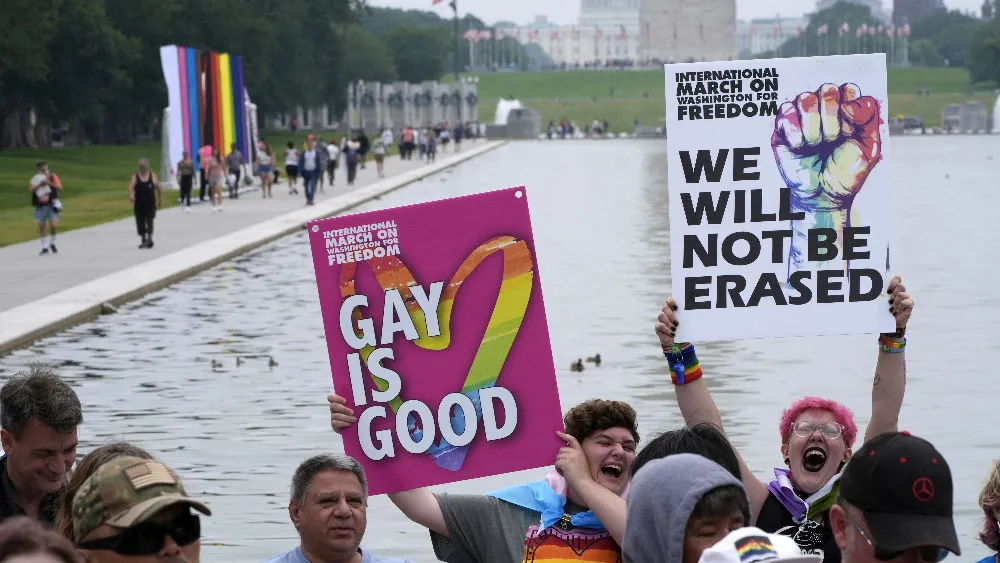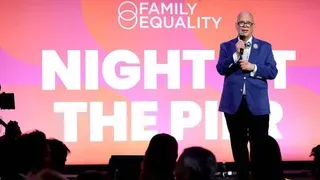September 15, 2021
The Life-Saving Impact of Transgender-Affirming Addiction Recovery Treatment
Merryn Johns READ TIME: 4 MIN. SPONSORED
A few years ago, Aden Zinkan realized he had a problem with alcohol.
He was 22 years old, working long hours – overnight shifts at Amazon – and hoping for a promotion.
Zinkan, a trans man, was engaged to a queer woman, and most of their socializing took place around alcohol – as it often does for young LGBTQ+ people.
When Zinkan and his fiancée broke off their engagement, he moved into his own place and kept up his alcohol intake for company and to relieve stress – workplace, family, and the constant news of anti-trans violence. As a result, it wasn't unusual for him to self-soothe by consuming an entire bottle of liquor and a couple of cases of beer per night.
"I thought, I'm 22, I'm having fun," says Zinkan.
But he felt sick all the time, and eventually, he realized it wasn't the hormone treatment he was taking to transition.
"I was dizzy; my stomach always hurt. Physically and emotionally, I never felt okay."
He also felt that an ocean of booze wouldn't take away his pain, but to quit cold turkey would mean severe withdrawal. He confided in his mother, and she recommended that he seek professional help. But where?
Where does a trans man still dealing with his gender confirmation treatment go to be treated for alcohol addiction? Most recovery settings involve groups of people with their own issues. After years of rejection, discrimination and vilification – even from his father – Zinkan worried if he would be understood and accepted.
Additionally, alcohol abuse can be connected to anxiety and depressive disorders, both of which Zinkan had been diagnosed with.
"I don't do well in social settings," he shares. "I'd have a drink to calm my nerves, and that's how I started self-medicating my anxiety with alcohol."
Zinkan found a Florida detox center and spent three weeks there, during which it became clear the facility was not prepared to treat a transgender client.
Because he didn't have his name and gender marker changed on his ID, Zinkan was housed by himself, and while he couldn't complain about getting his own room, it felt like being quarantined. And there was no program tailored to a transgender man's physical, emotional, and psychological needs.
The treatment center reached out to Inspire Recovery and transferred Zinkan. It was an immediate relief. "When I got there, I was housed with another trans man, which was really cool." The staff used Zinkan's correct name of Aden and he/him/they pronouns.
Any clinicians who came in to do group work with patients were part of the LGBTQ+ community.
"A lot of it was very affirming and everyone was very understanding," says Zinkan. "The staff were really good about using my name and my pronouns, which helped a lot. Because if I went to a place that didn't, I don't think I would have made it at all."
The sober housing was a 15-minute walk from an LGBTQ+ center. "My first day at Inspire Recovery, I was able to go to an outside meeting that was LGBT, which was mind-blowing for me," says Zinkan.
Another aspect of Inspire Recovery that spoke to him was the emotional and spiritual enrichment. The day would start with meditation and include breathwork, bodywork, nutrition, and an understanding of who he is as a trans person.
He was also able to mix with and understand the issues of racially diverse trans women, cisgender lesbians, and non-binary folks.
[READ MORE: How a South Florida LGBTQ+ Treatment Center is Turning Inspiration Into Action]
"People came from thousands of miles away because they'd heard about this treatment facility that treated you as you identify," he says.
Not only did Inspire Recovery treat Zinkan as he identified – they supported him through top surgery during treatment. "People who worked for Inspire took me to the surgery and fixed me up afterward. Donna, the owner of Inspire Recovery, checked with me later to make sure that I was okay. It's a family. Everybody cares about you, and everything is specifically tailored towards what you need. I can't think of any other place that would do that."
Zinkan successfully completed his one-year program and is celebrating two years of sobriety. He works as a veterinarian technician for an animal shelter, administering IV medications for animals.
"I would never have thought I'd be allowed to do this: Have access to controlled substances that might represent a danger to the sobriety community. But now I don't have that thought or compulsion."
The key to recovery was a positive affirmation of who he is, says Zinkan. "Inspire Recovery is one of the most affirming places I've ever been."
Do you or a loved one need help? LGBTQ-affirming alcohol and substance treatment may be the right solution. Visit inspirerecovery.com for more information, or call 561-899-6088 for more information.
Merryn Johns is a writer and editor based in New York City. She is also a public speaker on ethical travel and a consultant on marketing to the LGBT community.





